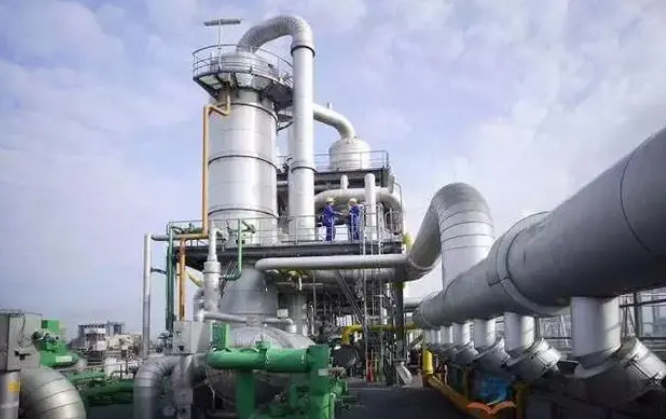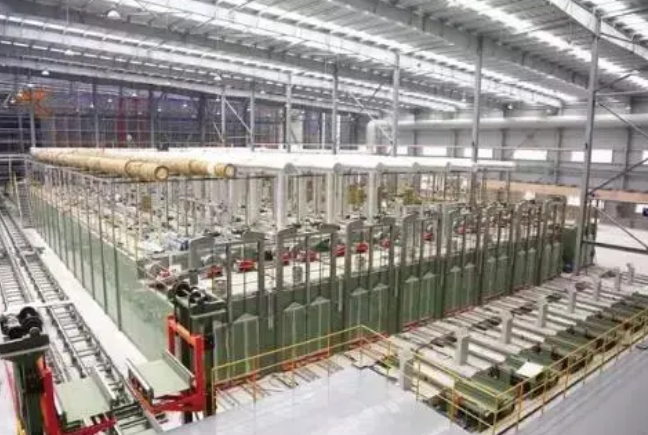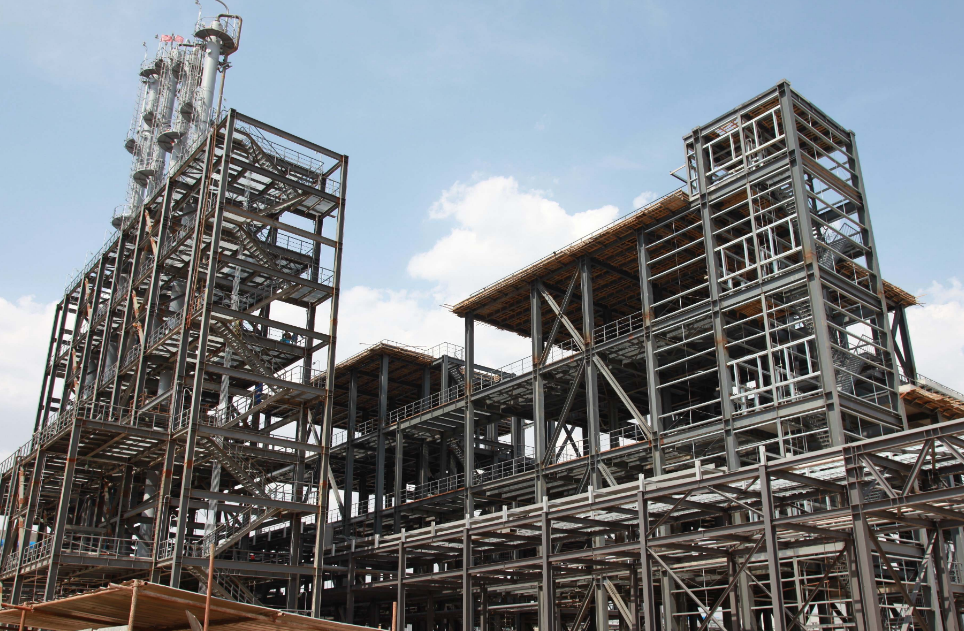Analysis of current status, advantages and misunderstandings of digital transformation in chemical industry
Today's world has entered the digital era, digital technology in the media, life, economic, social, cultural and medical fields continue to expand the application and achieved remarkable results. With the accelerating changes in technological innovation, customer demand and external environmental factors, the combination of digital technology and manufacturing industry is becoming more and more close, and the digital transformation of manufacturing enterprises is also accelerating.
In recent years, due to the inherent cyclical and commoditized nature of the global chemical industry, companies have faced increasing business challenges and pressures to find new sources of profit and provide innovative solutions to demanding customers. In the past, most chemical companies have achieved sustained profit growth by optimizing asset utilization, increasing production, improving operational efficiency, and implementing optimal pricing to improve operations and finances. Today, chemical companies not only focus on improving their core business, but also regard digital transformation as one of their core business development goals.

First, the advantages of digital transformation of chemical enterprises
At present, there are widespread problems in the production management of industrial enterprises such as difficult on-site coordination, difficult information communication, difficult personnel and equipment management, difficult standard landing, poor training effect, many process changes, miscellaneous equipment models, and difficult intelligent transformation.
In the production process of some chemical enterprises, many works carried out on site still need to be recorded or registered in the office twice, and the process and specifications lack coercive means in the implementation process. It is difficult to manage a large number of data, and the workload of statistical search is huge, and it is difficult to play the real value of the data. A lot of work on site requires repeated communication and handover, which is time-consuming and labor-intensive and prone to errors. When the customer consults the production status of the order, the various departments involved in the production of the order cannot reply the relevant questions in a timely and accurate manner due to the difficult traceability of the production process, untimely information transmission, time-consuming and laborious statistical data, etc., resulting in huge communication costs.
Digital transformation refers to the use of a new generation of information technology to build a closed loop of data collection, transmission, storage, processing and feedback, open up data barriers between different levels and different industries, improve the overall operation efficiency of the industry, and build a new digital economic system. According to the prospective Industry Research Institute statistics show that the digital factory can make the time to market at least 30% earlier; By optimizing planning quality, manufacturing costs can be reduced by 13%. Digital technologies are expected to transform and generate 10 to 45 percent of industry revenues in China by 2030. With the spread of data and computing power, increasing communication within production operations and between industry value chain partners, digitization is opening up new opportunities for the entire chemical industry.

Digitalisation also taps into the value creation potential of sales and marketing. Digital investments in marketing and sales can increase the industry's average return on sales (ROS) by 2 to 4 percentage points. According to the Chemical Industry Market Research Analysis Report 2018, BASF uses advanced analytical techniques to reset the price of a portfolio of 100,000 product customers in seven core countries, based on individual risk and willingness to pay. Through a combination of analytics, capacity building and change management, the company achieved price growth of 5 to 7 percent.
Digitization has also effectively increased the efficiency of risk management. In China, after Wanhua Chemical applied the mobile management and control system, the formation of big data provided a reliable protective layer data chain for accident prevention and analysis, and realized the safe management of personnel behavior; Diversified and personalized training materials and test materials are oriented and accurately pushed. The mobile training mode enables personnel to learn anytime and anywhere and improves the flexibility of training. The safe job unit function provides more time for risk assessment before the job, facilitating job order archiving, real-time query and statistical analysis, and effectively managing non-job risks in the process.

Second, the chemical industry digital transformation status
The intelligence of the manufacturing process is the direction of the development of the manufacturing industry and the development process of intelligent manufacturing. The process attributes of the chemical industry are the most suitable for the deepening of digital transformation. Obviously, this has inherent advantages for chemical enterprises to cut into the digital stage compared with the discrete equipment based machinery industry. Therefore, digitization and informatization are the only way to realize the intelligence of the chemical industry. However, due to many factors, domestic chemical enterprises generally face the problem of low digitization degree.
According to the 2017 Global Digital Chemicals Survey, more than 50% of chemical companies still lack a digital strategy and transformation roadmap. Two-thirds of chemical companies with $5 billion to $25 billion in annual revenue operating specialty chemicals (specialty chemicals, coatings, plastics, and composites) are in the early stages of digital transformation. In the petrochemical industry, the concept of integrated automation systems and digital plants has begun to permeate the industry. In the past 10 years, large-scale petrochemical and coal chemical engineering have adopted integrated automation systems without exception.
Although most chemical companies are constantly generating large amounts of data, most are not adopting digital technologies. If managers collect and analyze the data, they can explore the possibilities of increasing production and turnover, reducing energy consumption, and reducing maintenance costs.

Misunderstandings in the digital transformation of chemical enterprises
In recent years, the chemical industry has become increasingly competitive, due to changing customer needs, regulatory environment, dynamic costs, putting pressure on chemical companies, digital transformation has become an inevitable development trend. However, in the process of transformation, there are still some problems such as concept errors, insufficient understanding of digital needs, unsatisfactory digital construction effect, and lack of funds and talents.
In the process of digital transformation, large-scale capital investment in the early stage of chemical enterprises can make great progress in hardware construction in a relatively short time. Therefore, in the subsequent digital construction, people are accustomed to following the existing experience in the construction of hardware infrastructure, resulting in some wrong ideas that restrict digital construction. For example, some people think that the digital construction of chemical enterprises is only a problem of the information department, resulting in low participation of business departments; Some people think that it is necessary to build it first and then change it while using it, which can easily lead to the failure of information system construction.

Due to the different industry process routes and production modes, the demand for digitalization is also very different. At the same time, the norms and standards between industries are not the same, resulting in poor information transmission between industries, reducing the efficiency of enterprise digital construction. The digital construction of chemical enterprises cannot be separated from the construction of data foundation, management foundation and technology foundation. However, due to the relatively low technical level and management standards, the basic data of some enterprises is distorted or incomplete, which is not conducive to the digital construction of enterprises.
In the implementation of digital construction, some chemical enterprises blindly pursue the large and complete system functions, resulting in the digital system of chemical enterprises can not match their own management and business processes, can not achieve the ideal effect, and ultimately lead to the waste of investment and idle equipment.
In addition, digital construction is a complex system project, which needs to invest a lot of funds and the support of compound talent team. At present, due to the lack of digital understanding and lack of capital investment, many enterprises find it difficult to give full play to the role of digital construction in enhancing the core competitiveness of enterprises. At the same time, the lack of high-quality information technology personnel is also one of the direct reasons for the smooth development of enterprise digitalization.

Fourth, the focus of chemical enterprises to promote digital transformation
Based on the current situation of the digital development of chemical enterprises, China's chemical enterprises should also comprehensively consider their own advantages and shortcomings, and actively promote the landing of digital strategy. According to the specific deployment of the intelligent manufacturing pilot demonstration special action of the Ministry of Industry and Information Technology, combined with the actual situation of the chemical industry, the main tasks and focus on the following five aspects, and orderly promote the digital transformation of the industry.
First, build a strategic system for the digital economy, highlighting the forward-looking. Draw a roadmap for digital transformation, make a list of tasks, promote the solution of problems one by one, and accelerate the digital construction of enterprises. To complete the digital and intelligent transformation of equipment, through the Internet of Things technology, to achieve the integration of production equipment and virtual information network; Deepen the system application and optimize the business process, optimize the system and process, and improve the system application efficiency.
The second is to promote the comprehensive integration and deepening application of enterprise production management system and operation management system. In the aspect of vertical integration, the effective integration of management system and control system and the integration and sharing of data information are realized. In terms of production process management, improve the efficiency of process control system, promote the application of advanced optimization system (APC) in chemical industry, achieve smooth operation of enterprise production process, and improve energy utilization efficiency. At the level of production and operation, improve the application penetration rate, coverage and application depth of production execution system (MES). In terms of horizontal integration, it promotes the integration of raw material procurement, production and manufacturing process, logistics and warehousing production, supply and marketing industry chain, and realizes the goal of product traceability, manufacturing process monitoring, and benefits real-time calculation.

Third, we will build pilot projects for smart chemical industry parks. At present, there are nearly a thousand chemical parks in China, with huge differences in scale and leading industry types. Therefore, on the one hand, it is necessary to use information technology to vigorously improve the safety and environmental protection level of the park, on the other hand, it is necessary to do a good job in the construction of the public service platform for the integration of small and medium-sized enterprises, improve the basis for the integration of the two, improve the coverage and application efficiency of the single business system, accelerate the construction of the standard system of the smart chemical park, and promote the standardized development of the park. At the same time, we can also find the replicability of intelligent construction of chemical industry park through pilot demonstration.
Fourth, for labor-intensive and labor-intensive sections, it is necessary to demonstrate and lead by "machine replacement", "intelligent substituting" and "intelligent improving efficiency". Continue to promote intelligent manufacturing in intelligent workshops, intelligent sections, unattended, digital workshops and other aspects. At the same time, through the dual wheel drive of large enterprises to build platforms and small and medium-sized enterprises to use platforms, to promote the coordination and docking of digital resources, cultivate a number of virtual industrial clusters based on digital platforms, and promote the benign interactive development of all links of the industrial chain.
Fifth, explore mechanisms for education and personnel training. In the era of digital transformation, mobile Internet and big data cloud computing, the concept, tools, means and methods of training talents should also be digital. The personnel involved in the digital construction of chemical enterprises should not only understand the enterprise management, but also master the information technology. Enterprises should also provide adequate human resources protection and create a good talent environment.
- ABB
- General Electric
- EMERSON
- Honeywell
- HIMA
- ALSTOM
- Rolls-Royce
- MOTOROLA
- Rockwell
- Siemens
- Woodward
- YOKOGAWA
- FOXBORO
- KOLLMORGEN
- MOOG
- KB
- YAMAHA
- BENDER
- TEKTRONIX
- Westinghouse
- AMAT
- AB
- XYCOM
- Yaskawa
- B&R
- Schneider
- Kongsberg
- NI
- WATLOW
- ProSoft
- SEW
- ADVANCED
- Reliance
- TRICONEX
- METSO
- MAN
- Advantest
- STUDER
- KONGSBERG
- DANAHER MOTION
- Bently
- Galil
- EATON
- MOLEX
- DEIF
- B&W
- ZYGO
- Aerotech
- DANFOSS
- Beijer
- Moxa
- Rexroth
- Johnson
- WAGO
- TOSHIBA
- BMCM
- SMC
- HITACHI
- HIRSCHMANN
- Application field
- XP POWER
- CTI
- TRICON
- STOBER
- Thinklogical
- Horner Automation
- Meggitt
- Fanuc
- Baldor
- SHINKAWA
- Other Brands






































































































































